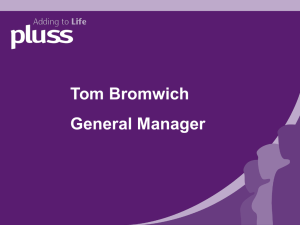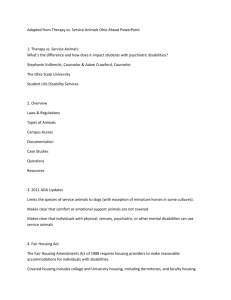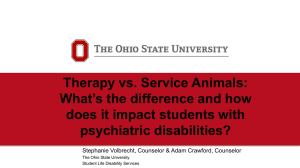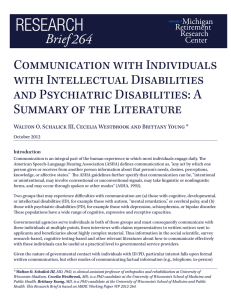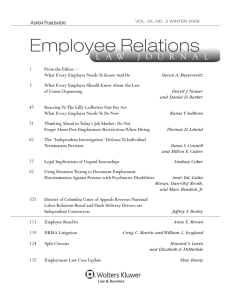Depression/Anxiety: Teaching Tips
advertisement
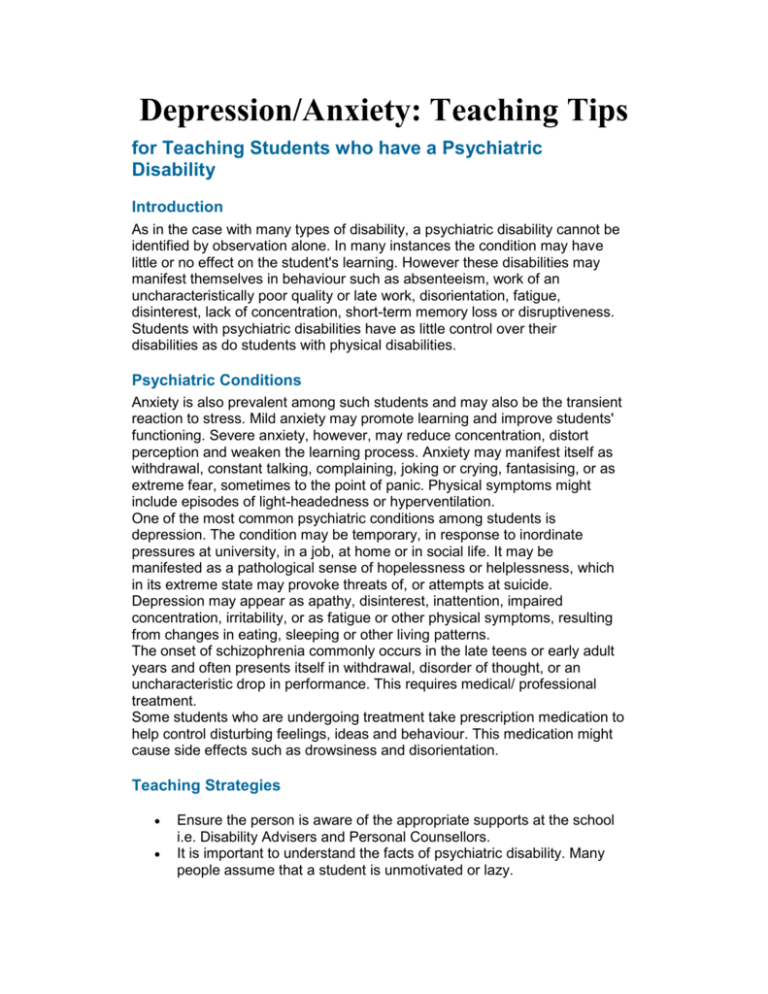
Depression/Anxiety: Teaching Tips for Teaching Students who have a Psychiatric Disability Introduction As in the case with many types of disability, a psychiatric disability cannot be identified by observation alone. In many instances the condition may have little or no effect on the student's learning. However these disabilities may manifest themselves in behaviour such as absenteeism, work of an uncharacteristically poor quality or late work, disorientation, fatigue, disinterest, lack of concentration, short-term memory loss or disruptiveness. Students with psychiatric disabilities have as little control over their disabilities as do students with physical disabilities. Psychiatric Conditions Anxiety is also prevalent among such students and may also be the transient reaction to stress. Mild anxiety may promote learning and improve students' functioning. Severe anxiety, however, may reduce concentration, distort perception and weaken the learning process. Anxiety may manifest itself as withdrawal, constant talking, complaining, joking or crying, fantasising, or as extreme fear, sometimes to the point of panic. Physical symptoms might include episodes of light-headedness or hyperventilation. One of the most common psychiatric conditions among students is depression. The condition may be temporary, in response to inordinate pressures at university, in a job, at home or in social life. It may be manifested as a pathological sense of hopelessness or helplessness, which in its extreme state may provoke threats of, or attempts at suicide. Depression may appear as apathy, disinterest, inattention, impaired concentration, irritability, or as fatigue or other physical symptoms, resulting from changes in eating, sleeping or other living patterns. The onset of schizophrenia commonly occurs in the late teens or early adult years and often presents itself in withdrawal, disorder of thought, or an uncharacteristic drop in performance. This requires medical/ professional treatment. Some students who are undergoing treatment take prescription medication to help control disturbing feelings, ideas and behaviour. This medication might cause side effects such as drowsiness and disorientation. Teaching Strategies Ensure the person is aware of the appropriate supports at the school i.e. Disability Advisers and Personal Counsellors. It is important to understand the facts of psychiatric disability. Many people assume that a student is unmotivated or lazy. Symptoms and medication side-effects may affect students' ability to submit work on time or to sit exams in the traditional manner. Ask what support the student may need. If the student has poor concentration, audio-taping of lectures in addition to note-taking may be beneficial. For many people with psychiatric disability, stress can trigger symptoms. The stress of oral presentations before a large group can sometimes cause a relapse of symptoms. Students may be more at ease with a smaller group. Quite often, the type and level of support needed will fluctuate. Be guided by each student's ability to cope with academic requirements, not by the diagnosis. If students need to be admitted to hospital or take time off, this does not necessarily mean that they need to defer or cancel their studies. The Disability Adviser may be able to assist in determining a contingency plan. Be aware of your own abilities and limitations. If you are in a situation that is causing difficulties or are unsure of how to assist a student, ask advice of the Disability Advisers or Personal Counsellors. Be aware of confidentiality issues. Community attitudes to people with psychiatric disabilities are often based on media-engendered misconceptions and identification of the person can lead to embarrassment.


